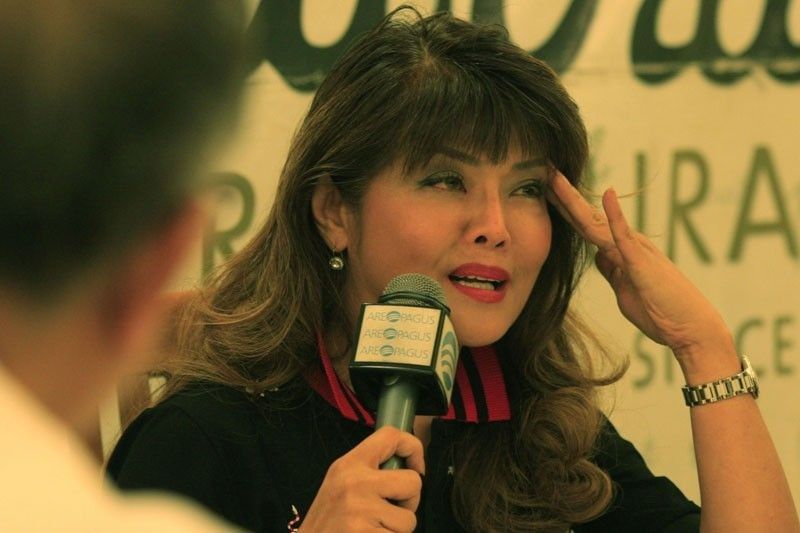Imee Marcos claims Dominguez critique of 'Masagana 99' means 'giving up on farmers'

MANILA, Philippines (Updated 4:59 p.m.) — Sen. Imee Marcos on Thursday attempted to sell anew the supposed success of the "Masagana 99" agriculture program and slammed Finance Secretary Carlos Dominguez III for calling one of her late father's projects a "mess".
"Shame on you, Secretary Dominguez, give the Filipino farmer some credit," the daughter of ousted dictator Ferdinand Marcos Sr. said in a statement.
"When supported by sound government policy and defended against rampant importation, we can feed ourselves. Give the Filipino farmer a chance," she added.
The two officials clashed Wednesday when Marcos prodded Dominguez to muster a bigger stimulus for the government's coronavirus response and use the Masagana 99 program as a template for tapping banks to help farmers and informal settlers displaced by the outbreak.
Launched in 1973, Masagana 99 served as the Marcos patriarch’s program to increase rice production by offering highly-subsidized loans to farmers so they can buy fertilizers and invest in equipment.
But Dominguez, who served as agriculture chief during the presidency of Corazon Aquino, immediately dismissed Marcos' proposal. Aquino replaced Marcos, whose corrupt dictatorship was toppled by a mostly bloodless revolution in 1986.
“Ma'am, before we go ahead, you mentioned Masagana 99. I was the Secretary of Agriculture that cleaned up the mess that was left by Masagana 99,” Dominguez said.
“There were about 800 rural banks that were bankrupted by that program. We had to rescue them. So whether it's a total success or not, it has to be measured against that,” he added.
'Short-lived, unsustainable'
Marcos also countered Dominguez's argument that the Philippines "never exported rice" when Masagana 99 was implemented.
Citing agronomist and former University of the Philippines president Emil Javier, the senator insisted that the country was able to export rice after farmers "produced a surplus of some 89,000 metric tons in 1977 to 1978."
But while Javier indeed wrote in a November 2016 Manila Bulletin column that the Philippines was able to export rice in the late 1970s, he also said in the same opinion piece that Masagana 99 "proved to be short-lived and unsustainable."
"Giving away seeds, fertilizers, pesticides and dryers while politically attractive is temporary, wasteful and prone to graft," Javier wrote.
'Unintended beneficiaries'
In a 2012 study, researchers at the state-funded Philippine Institute for Development Studies noted how Masagana 99 failed to uplift the still struggling farm sector. Apart from leaving poor farmers highly indebted, the build-up of unpaid loans also tarnished the balance sheets of many rural banks.
The PIDS also said that Masagana 99 did not achieve the intended goal of providing small farmers access to credit. "Unintended beneficiaries capture the subsidies and rural banks developed dependency on the Central Bank of the Philippines," the government think tank said.
Despite the program’s failure, President Rodrigo Duterte’s former agriculture chief Emmanuel Piñol mulled copying the program in 2017 through Masaganang Ani 200 when rice stocks at government warehouses were being depleted.
The plan, however, was overtaken by events, including the passage of the rice liberalization law, which Piñol opposed but was supported by Dominguez and other economic managers as a long-term fix to the rice shortage in 2018 that fueled inflation.
In the same statement, Marcos accused Dominguez of "[giving] up on our rice farmers ever regaining their export potential and will let unregulated rice importation do the dirty job of snuffing them out."
"What our country's chief economic manager is really saying is that rice farmers are a pain in the budget and are not worth subsidizing," she added. — Ian Nicolas Cigaral
- Latest
- Trending




























